
November 16, 2023
Taste, cost, and nutrition are people’s most important considerations when purchasing food. Other concerns such as environmental effects, animal welfare, and where or how food is produced are considered less important.
About one in five adults say they understand how to eat in a way that is environmentally friendly, and few adults consider how the food they eat affects the environment.
While most people care about how their food tastes and how much it costs, adults ages 30 years and older are more likely to consider the nutritional value of their food than younger adults. About a third of the public prioritize the environment or animal welfare in their food choice, but younger adults are particularly unlikely to take those factors in account when purchasing food.
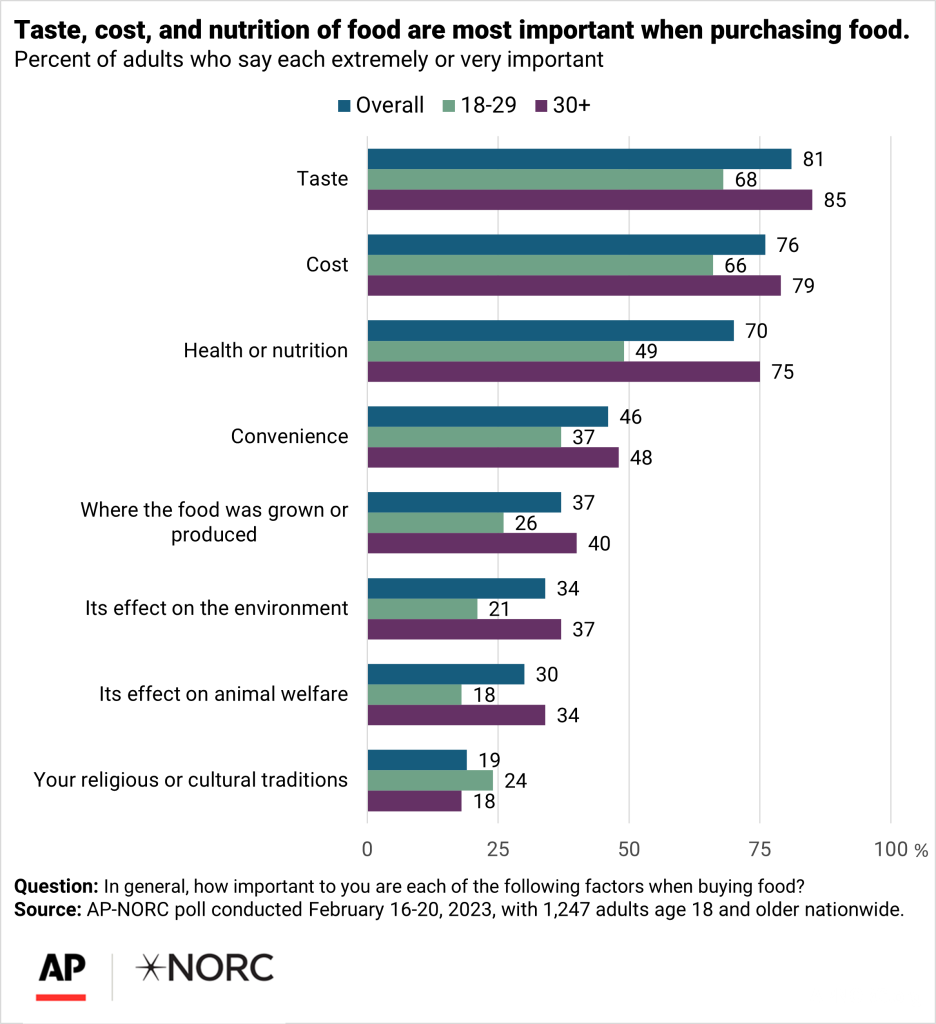
Twenty-three percent of adults say they mostly eat locally grown or sourced foods, 14% say they mostly eat organic foods, 4% are pescetarian, 4% are vegetarian, 3% are vegan, and 12% consider themselves “flexitarian.” The flexitarian diet is a flexible eating style that emphasizes the addition of plant or plant-based foods, incorporates dairy and eggs and encourages meat to be consumed less frequently.
Few adults put much importance on how the production of food affects the environment. About half do not consider the use of water, deforestation, or climate change when purchasing food. However, 77% do think about whether pesticides or other chemicals are used in the production of the food. Seventy-four percent of adults who think a lot about whether a food’s production contributes to climate change ascribe high importance to the environmental effects of food on their diet. Fifty-one percent of vegetarians and 61% of vegans think a lot about whether a food’s production contributes to climate change.
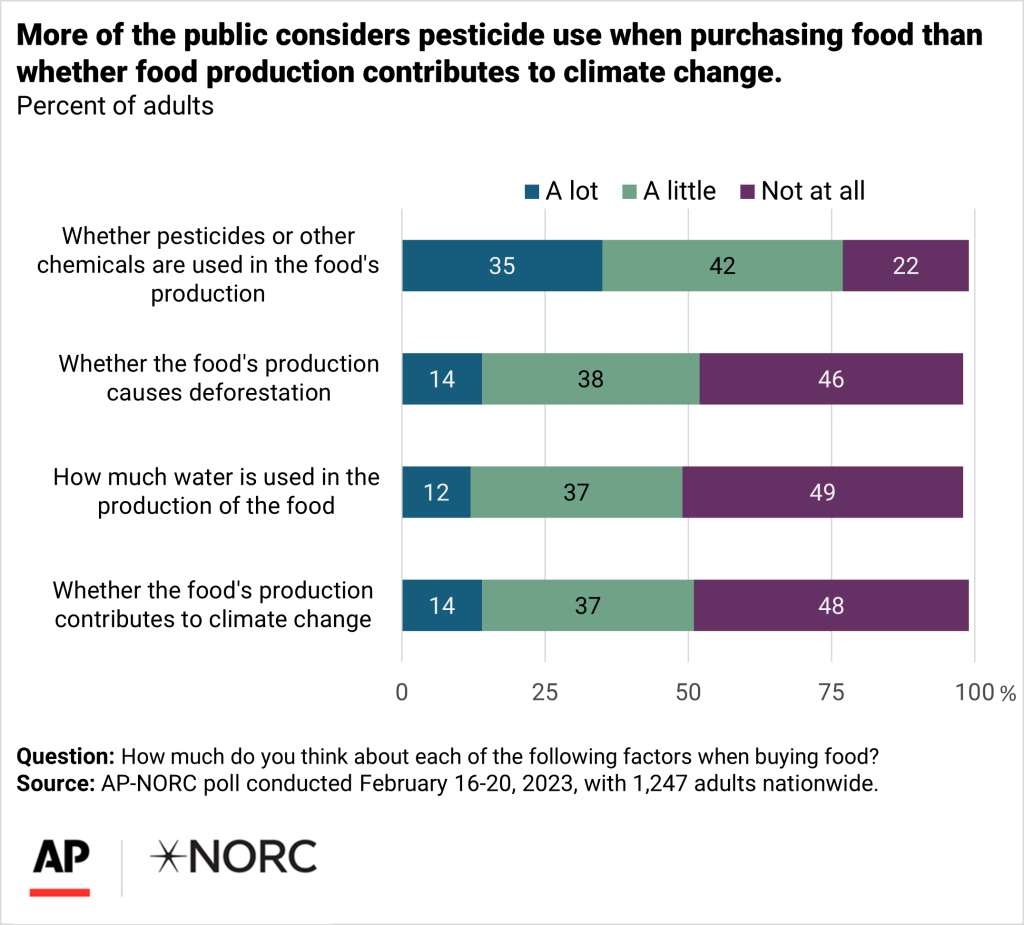
Only 18% of adults say they are well informed about how to eat in an environmentally friendly way, while 46% say somewhat well, and 36% have little or no understanding.
Of those who say they are extremely or very knowledgeable about how to eat in environmentally friendly ways, 54% say that environmental effects are highly important factors in their dietary decisions.
Overall, there is little support for some policies suggested to reduce meat consumption in order to help the environment. Both Democrats and Republicans oppose increasing taxes on the sale of meat. While most Republicans disagree with requiring public schools to serve vegetarian meals once a week or banning public advertising for meat on government property, Democrats tend to be more conflicted on these issues.
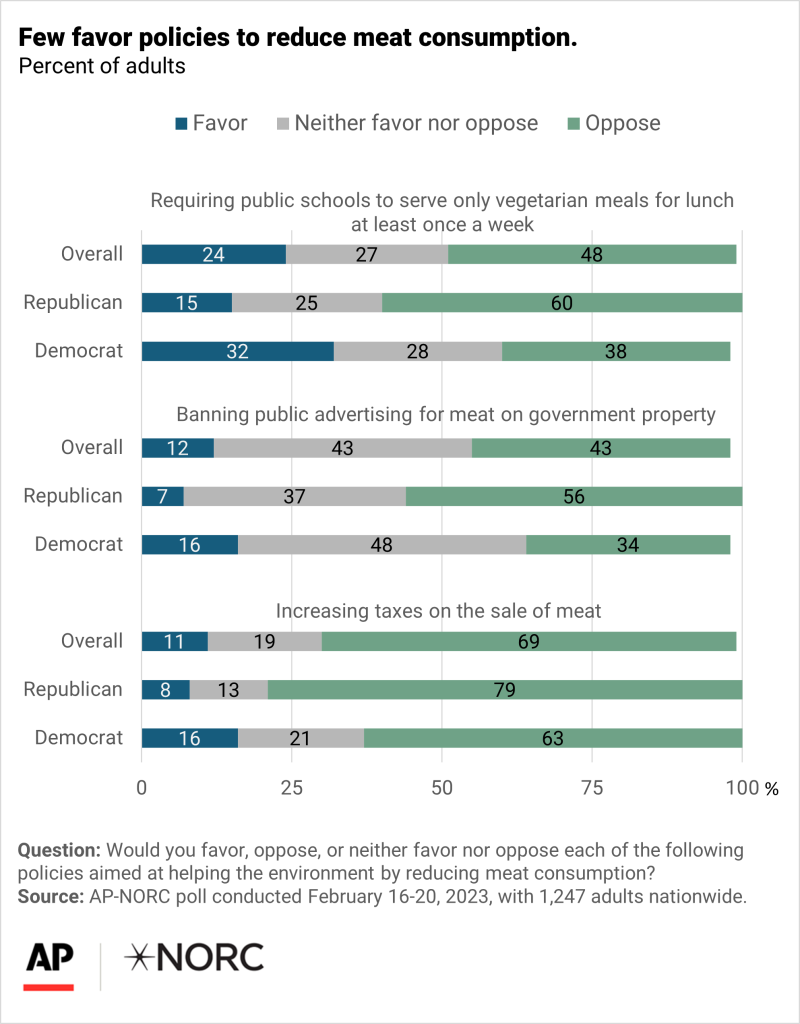
More than 9 in 10 say they eat some form of meat (beef, pork, or poultry) at least once a week, but of them 43% say they eat less meat than they used to do. Similarly, 90% say they consume some form of dairy at least once a week and 43% of them say they eat less dairy than they used to.
Forty-six percent of adults say they eat fish or shellfish at least once a week, however only 4% describe themselves as a pescetarian, someone who eats seafood but not other meat such as beef, pork or poultry.
Nearly half (46%) of those who eat meat do so because they like the taste and 27% consider meat to be the best source of protein.
Few adults even occasionally eat plant-based meat. And half of the public is not interested in eating cell-based meat grown in labs, citing strangeness and food safety concerns.
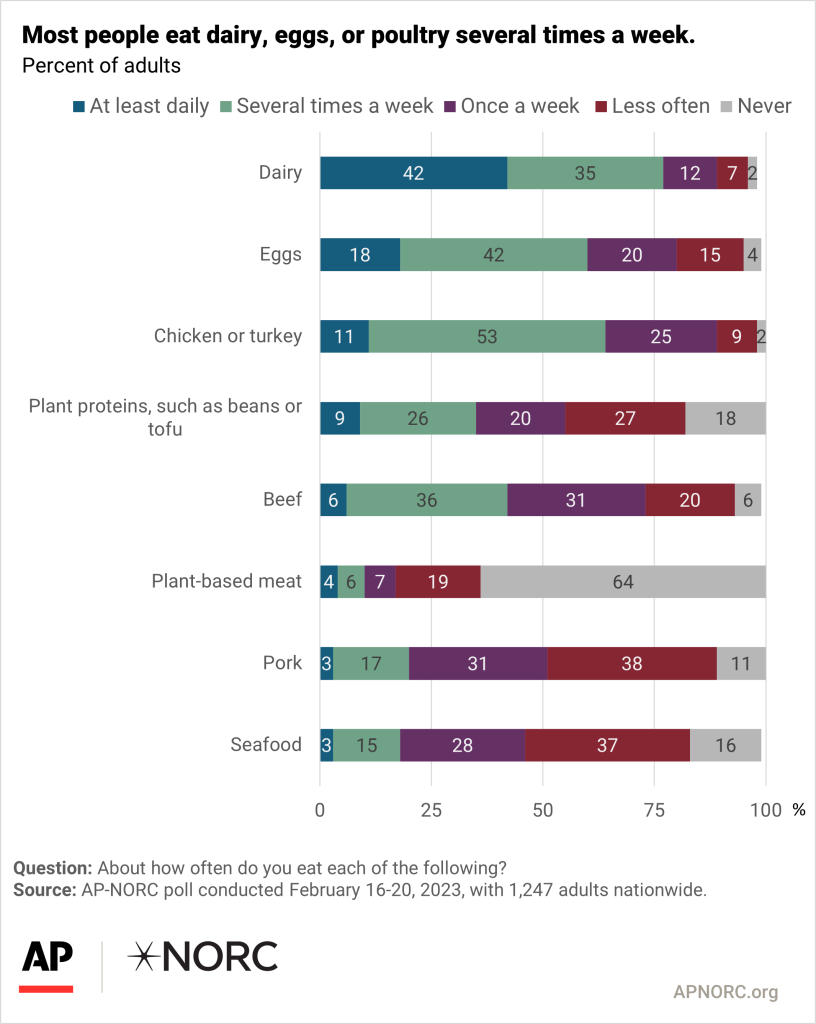
Health and nutrition are the main driver of the consumption of less meat or dairy. Among adults in households earning less than $100,000 a year, cost savings is also an important factor for eating eat less meat.
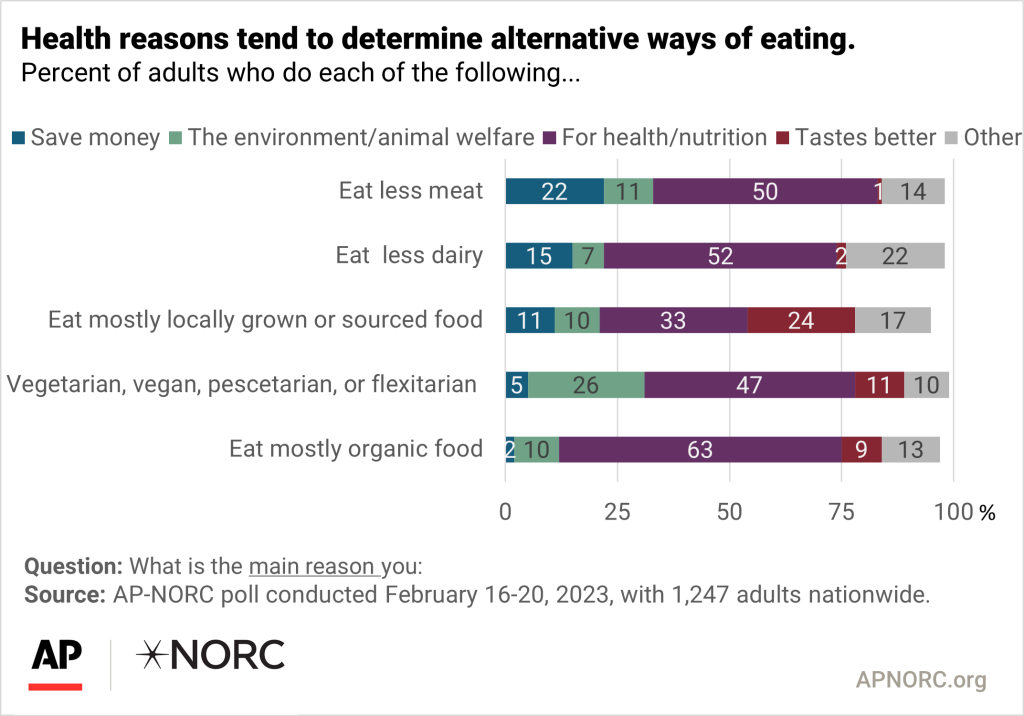
As many people make dietary choices based on nutrition, most say their food selections are influenced by health care providers. Friends and family also tend to have an effect on what people eat.
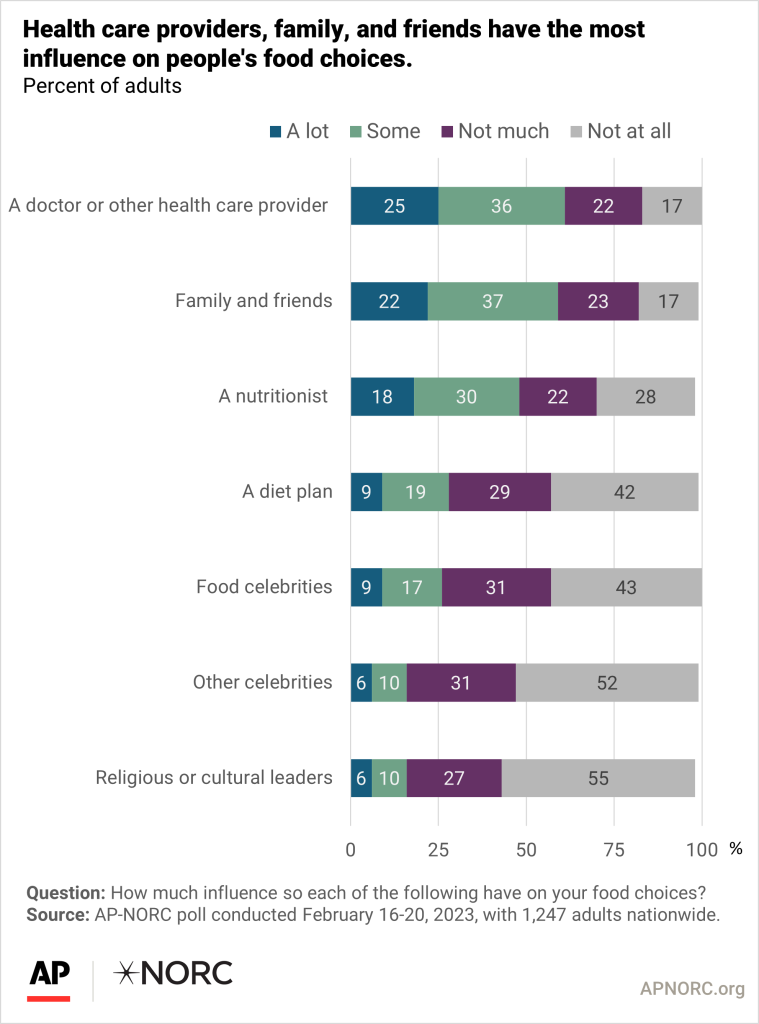
There is not much support for food that has been genetically modified or contains GMOs. The genes of food crops can be changed to make them more nutritious and more resistant to insects, disease, or weeds. However, most people are not convinced of the benefits of GMOs.
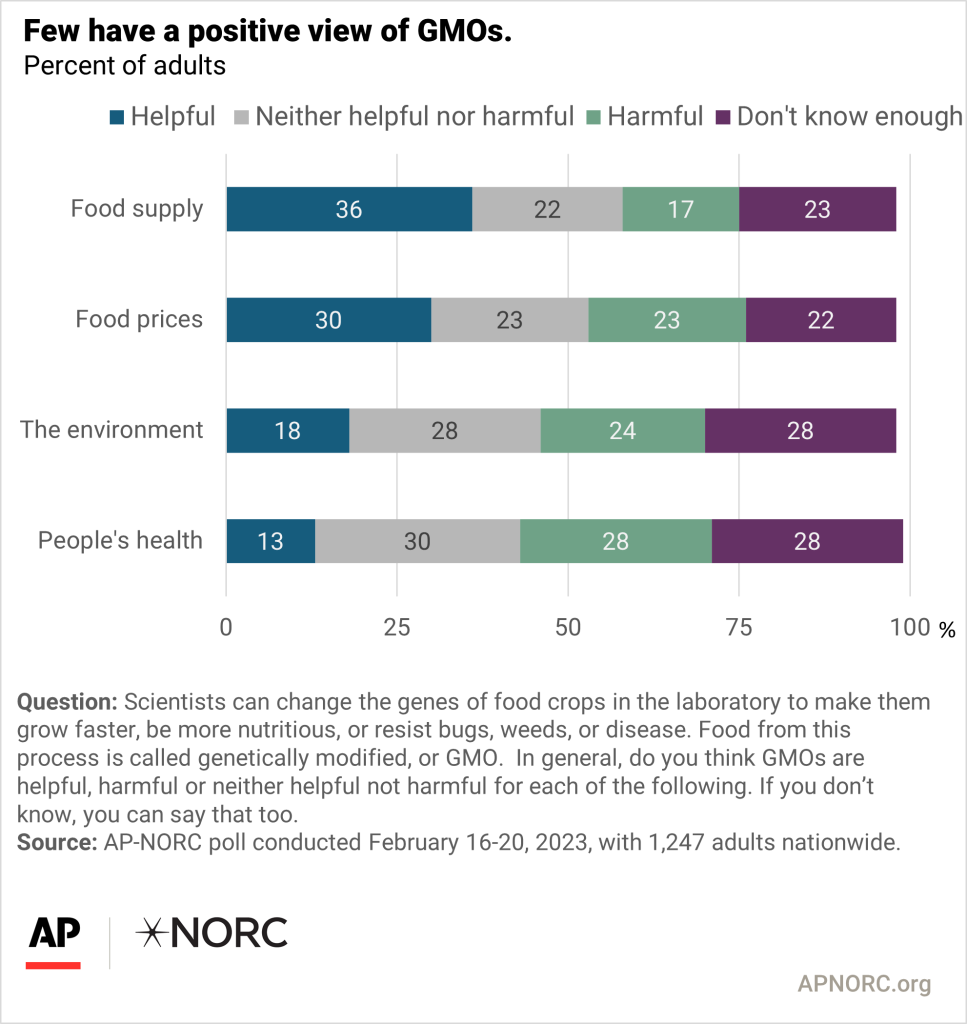
The nationwide poll was conducted February 16-20, 2023 using the AmeriSpeak® Panel, the probability-based panel of NORC at the University of Chicago. Online and telephone interviews using landlines and cell phones were conducted with 1,247 adults. The margin of sampling error is +/- 3.7 percentage points.
- Citation: AP-NORC Center for Public Affairs Research. (November 2023). “Taste, cost, and health concerns far outweigh environmental considerations when people choose what to eat”
apnorc.org/projects/taste-cost-and-health-concerns-far-outweigh-environmental-considerations-when-people-choose-what-to-eat/






